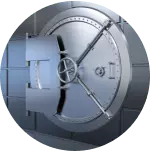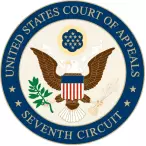If you are involved in a criminal case being appealed in a federal court of appeals, having the right representation is important. Elizabeth Franklin-Best, is dedicated to providing high level representation for clients facing federal criminal appeals in the federal appellate court system.
With years of experience and a proven track record of success, our team of federal appeals lawyers has the knowledge and skill to guide you through the appeals process and fight for your rights.
Contact us today to learn how we can help you with your federal criminal appeal.
Understanding the Structure of the Federal Appellate Court System
The Federal Appellate Court System is a hierarchical system of courts responsible for hearing appeals of cases from lower courts in the United States.
The system consists of 13 Circuit Courts of Appeal, including a Court of Appeals for the Federal Circuit and the United States Supreme Court:
- The Circuit Courts of Appeals are the intermediate-level courts in the federal system, and they hear appeals from federal district courts and certain specialized courts. These courts are organized geographically, with each of the circuits covering a specific region of the United States.
- The Court of Appeals for the Federal Circuit has nationwide jurisdiction and hears appeals from specific federal courts, including the Court of Federal Claims and the Court of International Trade.
- The Supreme Court is the highest court in the United States and has the final say on the interpretation of federal law. It hears appeals from the Circuit Courts of Appeals and the Court of Appeals for the Federal Circuit, as well as cases that involve important constitutional or legal questions.
The Federal Appellate Court System is a complex but critical component of the American judicial system. Its hierarchical structure allows for appeals to be heard at multiple levels, ensuring that cases are reviewed by multiple judges and providing opportunities for the law to be clarified and developed over time.
The Circuit Courts of Appeals
The Circuit Courts of Appeal are responsible for hearing appeals from federal districts and specialized courts within their regions:
- First Circuit Court of Appeals — The First Circuit is headquartered in Boston, Massachusetts, and handles appeals from federal district courts in Maine, Massachusetts, New Hampshire, Puerto Rico, and Rhode Island.
- Second Circuit Court of Appeals — The Second Circuit is headquartered in New York City and handles appeals from federal district courts in Connecticut, New York, and Vermont. The court is composed of 13 judges, including a Chief Judge.
- Third Circuit Court of Appeals — The Third Circuit is headquartered in Philadelphia, Pennsylvania, and handles appeals from federal district courts in Delaware, New Jersey, Pennsylvania, and the U.S. Virgin Islands. The court is composed of 14 judges, including a Chief Judge.
- Fourth Circuit Court of Appeals — The Fourth Circuit is headquartered in Richmond, Virginia, and handles appeals from federal district courts in Maryland, North Carolina, South Carolina, Virginia, and West Virginia. The court is composed of 15 judges, including a Chief Judge.
- Fifth Circuit Court of Appeals — The Fifth Circuit is headquartered in New Orleans, Louisiana, and handles appeals from federal district courts in Louisiana, Mississippi, and Texas. The court is composed of 17 judges, including a Chief Judge.
- Sixth Circuit Court of Appeals — The Sixth Circuit is headquartered in Cincinnati, Ohio, and handles appeals from federal district courts in Kentucky, Michigan, Ohio, and Tennessee. The court is composed of 16 judges, including a Chief Judge.
- Seventh Circuit Court of Appeals — The Seventh Circuit is headquartered in Chicago, Illinois, and handles appeals from federal district courts in Illinois, Indiana, and Wisconsin. The court is composed of 11 judges, including a Chief Judge.
- Eighth Circuit Court of Appeals — The Eighth Circuit is headquartered in St. Louis, Missouri, and handles appeals from federal district courts in Arkansas, Iowa, Minnesota, Missouri, Nebraska, North Dakota, and South Dakota. The court is composed of 11 judges, including a Chief Judge.
- Ninth Circuit Court of Appeals —The Ninth Circuit is headquartered in San Francisco, California, and handles appeals from federal district courts in Alaska, Arizona, California, Hawaii, Idaho, Montana, Nevada, Oregon, and Washington. The Ninth Circuit is the largest and most populous circuit. The court is the largest in the country, with 29 judges, including a Chief Judge.
- Tenth Circuit Court of Appeals — The Tenth Circuit is headquartered in Denver, Colorado, and handles appeals from federal district courts in Colorado, Kansas, New Mexico, Oklahoma, Utah, and Wyoming. The court is composed of 12 judges, including a Chief Judge.
- Eleventh Circuit Court of Appeals —The Eleventh Circuit is headquartered in Atlanta, Georgia, and handles appeals from federal district courts in Alabama, Florida, and Georgia. The court is composed of 12 judges, including a Chief Judge.
- DC Circuit Court of Appeals — The District of Columbia Circuit is headquartered in Washington, D.C., and is responsible for handling appeals from federal district courts in the District of Columbia. The District of Columbia Circuit is known for its influence on administrative law and has issued significant rulings in constitutional, environmental, and telecommunications law cases. The court is composed of 11 judges, including a Chief Judge.
Federal Circuit Court of Appeals
The Federal Circuit is headquartered in Washington, D.C. It handles specialized cases, including patent law, government contracts, and veterans’ benefits cases, nationwide.
The Federal Circuit is known for its expertise in intellectual property law and has issued significant rulings in cases involving patent infringement and trademark disputes. The court comprises 12 judges, including a Chief Judge, and its decisions significantly impact the technology and business industries.
U.S. Supreme Court
The United States Supreme Court is the highest court in the federal judicial system and 1789. It is headquartered in Washington, D.C., and is responsible for handling appeals from lower federal courts and state supreme courts.
The Supreme Court is known for its significant impact on American law and society and has issued landmark rulings in cases involving civil rights, criminal law, and constitutional law.
Federal Appeals Court Procedures and Rules
The appeals process allows parties to challenge trial court decisions. The appeals court procedures and rules provide the framework for handling appeals cases.
Filing Deadlines and Briefing Requirements
One of the critical appeals court procedures is the filing deadlines. Generally, you must file an appeal within a specific time frame, which varies depending on the type of case and the jurisdiction. For criminal cases, the deadline is 14 days from the entry of judgment.
Once the appeal is filed, the parties must comply with the briefing requirements. The appellant must file an opening brief outlining the arguments supporting the appeal. The appellee then files a response brief explaining why the trial court’s decision should stand. The appellant may then file a reply brief to address any new issues raised by the appellee.
The appeals court procedures and rules are complex and highly regulated. Parties must comply with strict filing deadlines and briefing requirements. The appeals court may schedule oral arguments, and parties may file motions and petitions during appeals. It is essential to work with an experienced appeals attorney to navigate the appeals process successfully.
Standards of Review in Federal Criminal Appeals
Standards of review determine the level of deference that the appellate court will give to the lower court’s decision.
The three main standards of review in federal criminal appeals are:
- De novo review — This standard is used for questions of law, which are issues governed by legal principles rather than facts. In a de novo review, the appellate court will review the lower court’s decision without giving any deference to the lower court’s ruling.
- Clear error review — This standard is used for questions of fact, which are issues that involve determining what happened in the case. In a clear error review, the appellate court will defer to the lower court’s findings of fact unless they are clearly erroneous.
- Abuse of discretion review — This standard is used for discretionary decisions made by the lower court, such as decisions on evidentiary issues or sentencing. In an abuse of discretion review, the appellate court will defer to the lower court’s decision unless it was arbitrary or based on an error of law.
While it’s likely that at least one of these standards will apply in any appeal, many other standards exist. Understanding the standards of review is essential for crafting a strong appellate strategy.
Post-Appeal Options
After exhausting all available options in federal criminal appeals, individuals may have other post-appeal options. These include filing a motion for reconsideration, a federal 2255 motion, or a compassionate release petition.
Post-appeal options require a strong legal strategy and a thorough legal system understanding. Consulting with an experienced federal criminal appeals lawyer can help navigate these options and increase the chances of success.
Why You Need a Federal Appellate Lawyer
If you have been convicted of a crime in a federal court or have lost a civil case in a federal district court, you may need to appeal your case to a federal appellate court.
Appealing a case to a higher court can be complex and difficult, so it’s important to have a skilled federal appellate lawyer on your side.
Here are five reasons why you may need a federal appellate lawyer:
- Understanding of the appellate process — Federal appellate courts have strict rules and procedures that must be followed when filing an appeal. A federal appellate lawyer can help you navigate these rules and ensure your appeal is filed correctly and on time.
- Experience with appellate arguments — Federal appellate lawyers are experienced in making persuasive arguments to appellate judges. They understand the intricacies of appellate law and know how to craft compelling legal arguments that can increase your chances of success on appeal.
- Thorough review of the trial record — To win an appeal, you must demonstrate that there were errors or issues with the trial court’s decision. A federal appellate lawyer can review the trial record to identify any errors or issues that may provide grounds for appeal.
- Knowledge of the law — Federal appellate law is complex and constantly evolving. A federal appellate lawyer stays up-to-date with the latest legal developments and can use this knowledge to strengthen your appeal.
- Access to resources — Federal appellate lawyers have access to legal research tools, expert witnesses, and other resources that can be invaluable in building a strong appellate case. They can leverage these resources to help you present the most compelling arguments possible.
Are you contemplating filing an appeal in federal court? Do not try to navigate your case alone. Our federal appellate attorneys at Elizabeth Franklin-Best can help you identify grounds for appeal, strengthen your arguments, and navigate the process with ease.
Contact Us for Appellate Representation Today
Successfully challenging a federal conviction or sentence takes skill and experience—two things our federal appeals lawyers at Elizabeth Franklin-Best have in spades.
If you or someone you love are serving time in federal prison and believe you qualify for an appeal, consult our team today. With years of experience in federal appellate law and dozens of successful representative cases backing us, our team has what it takes to build a strong appellate case and increase your chances of success on appeal.
When you work with us, you can expect personalized attention and dedicated representation. Don’t wait—get answers now. Contact us today for a consultation.
FAQ: Federal Court of Appeals
What is the Federal Court of Appeals?
The Federal Court of Appeals is the intermediate appellate court in the federal court system. It has jurisdiction to review decisions made by the district courts and federal administrative agencies.
How many circuits are in the Federal Court of Appeals?
There are 13 circuits in the Federal Court of Appeals. Each circuit covers a specific geographic region and comprises a panel of judges.
What types of cases are heard in the Federal Court of Appeals?
The Federal Court of Appeals hears various cases, including civil and criminal cases, appeals from administrative agencies, and appeals from decisions made by the district courts.
What is the role of the judges in the Federal Court of Appeals?
The Federal Court of Appeals judges review the decisions made by lower courts and administrative agencies to determine if they were correctly decided. They do not hear new evidence or testimony and instead rely on the record from the lower court or agency.
Can a decision made by the Federal Court of Appeals be appealed?
Yes, a decision made by the Federal Court of Appeals can be appealed to the United States Supreme Court. However, the Supreme Court only hears a small percentage of the cases that are appealed to it each year.
How long does it take for a case to be decided in the Federal Court of Appeals?
The amount of time it takes for a case to be decided in the Federal Court of Appeals can vary depending on the complexity of the case and the workload of the court. Generally, it takes several months to a year for a decision to be issued.































